Home>Furniture & Design>Living Room Furniture>How To Set Up A Dining Room Table
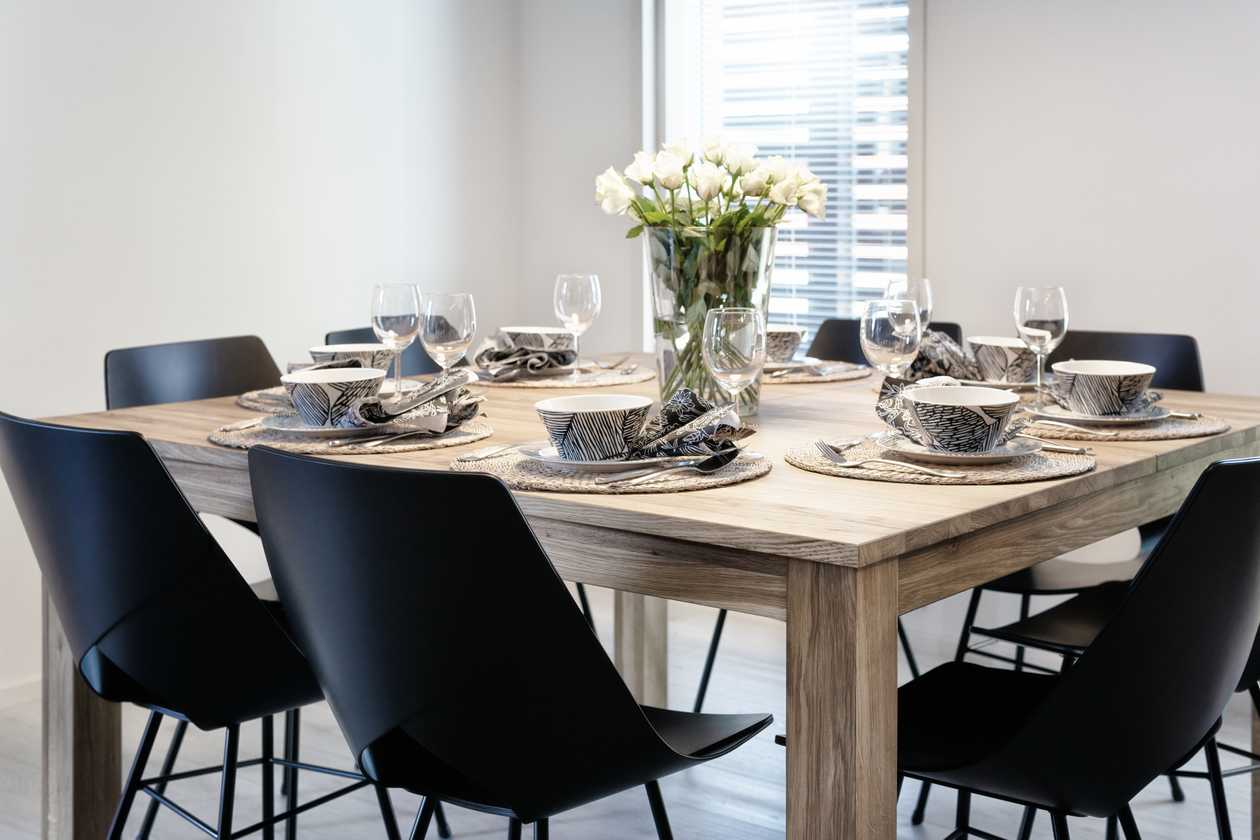

Living Room Furniture
How To Set Up A Dining Room Table
Modified: August 23, 2024
Learn how to set up a stylish dining room table with our expert tips and ideas. Discover the best living room furniture and design to elevate your space. Explore now!
(Many of the links in this article redirect to a specific reviewed product. Your purchase of these products through affiliate links helps to generate commission for Storables.com, at no extra cost. Learn more)
Choosing the Right Table
When it comes to setting up a dining room table, the first and most crucial step is selecting the right table. The dining table serves as the centerpiece of the room, and its design and size can significantly impact the overall ambiance and functionality of the space.
Read more: What Is In A Dining Room?
Finding the Perfect Size and Shape
The size and shape of the table are essential considerations. Rectangular tables are classic and versatile, making them suitable for various dining room layouts. They can easily accommodate a larger number of guests, making them ideal for families or individuals who frequently host gatherings. On the other hand, round tables promote inclusivity and conversation, making them perfect for smaller, more intimate settings.
Matching the Style with the Room
The style of the table should complement the overall aesthetic of the dining room. For a modern and sleek look, consider a glass or marble table. If you prefer a more rustic or farmhouse vibe, a wooden table with a distressed finish may be the perfect choice. Additionally, consider the color of the table to ensure it harmonizes with the room's color scheme.
Considering Practicality
Functionality is key when choosing a dining table. If space is a concern, extendable or drop-leaf tables offer flexibility by providing extra seating when needed while conserving space when not in use. Additionally, consider the material of the table. Solid wood tables are durable and timeless, while glass tables create an illusion of space and light.
Reflecting Personal Lifestyle
Finally, the table should reflect the lifestyle and needs of the household. Families with young children may prefer tables with rounded edges for safety, while individuals who entertain frequently might prioritize tables that can accommodate larger groups.
Selecting the right table is the foundation of creating a welcoming and functional dining space. By carefully considering size, shape, style, practicality, and personal lifestyle, you can choose a table that not only enhances the visual appeal of the room but also facilitates memorable dining experiences for years to come.
Key Takeaways:
- Choose the right dining table by considering size, style, practicality, and personal lifestyle. It’s the foundation for a welcoming and functional dining space that enhances the overall ambiance and dining experiences.
- Elevate your dining experience by thoughtfully arranging tableware, adding decorative elements, and setting the mood with lighting. Create a visually stunning and inviting dining space for memorable meals and gatherings.
Read more: How To Light A Dining Room
Selecting the Right Tableware
Once you have chosen the perfect dining table, the next step in setting up your dining room is selecting the right tableware. The tableware you choose can elevate the dining experience, adding a touch of elegance and style to your meals.
Choosing Dinnerware
When it comes to dinnerware, consider the style and theme of your dining room. Classic white dinnerware is timeless and versatile, effortlessly complementing any table setting. For a more eclectic and personalized look, mix and match different patterns and colors. Additionally, consider the material of the dinnerware. While porcelain and bone china exude sophistication, stoneware and earthenware offer a more casual and rustic charm.
Exploring Flatware Options
Flatware, including forks, knives, and spoons, should harmonize with the style of the dinnerware and the dining table. Traditional stainless steel flatware is a popular choice for its durability and timeless appeal. For a more formal touch, consider flatware with intricate designs or a polished silver finish. Alternatively, matte black or gold flatware can add a modern and luxurious flair to the table.
Enhancing with Glassware
The right glassware can enhance the visual appeal of the table and elevate the overall dining experience. Consider having a variety of glassware for different beverages, including wine glasses, water goblets, and tumblers. Crystal glassware adds a touch of refinement, while stemless glasses offer a more relaxed and contemporary vibe.
Read more: How To Organize Dining Room
Accessorizing with Table Linens
Table linens, such as tablecloths, placemats, and napkins, provide an opportunity to introduce color, texture, and pattern to the table. A crisp white tablecloth exudes elegance and simplicity, while vibrant or patterned linens can inject personality and charm. Additionally, consider the material of the table linens. Linen and cotton are durable and versatile choices, while silk and satin add a luxurious and opulent touch.
Considering Practicality and Maintenance
While aesthetics are important, practicality and maintenance should also be taken into account when selecting tableware. Opt for dishwasher-safe and microwave-safe dinnerware for convenience. Additionally, choose flatware and glassware that are easy to handle and maintain.
By carefully selecting dinnerware, flatware, glassware, and table linens that complement the style of your dining room and align with your practical needs, you can create a visually stunning and functional table setting that enhances the joy of dining and entertaining.
Placing the Tableware
Once you have chosen the perfect tableware for your dining room, the next step is to thoughtfully arrange and place the items on the dining table. Proper placement of tableware not only enhances the visual appeal of the table but also ensures functionality and convenience for you and your guests during meals.
Setting the Foundation with Dinnerware
Start by placing the dinnerware at each table setting. The dinner plate should be centered in front of each chair, approximately an inch from the edge of the table. If using salad plates or soup bowls, position them slightly above the dinner plate, maintaining an equal distance between each item. Ensure that the dinnerware is evenly spaced and aligned for a polished and organized look.
Read more: How To Clean A Dining Room
Arranging Flatware with Precision
Flatware placement follows a specific order. Place the forks to the left of the dinner plate, with the salad fork positioned to the left of the dinner fork. On the right side of the plate, place the dinner knife closest to the plate, with the cutting edge facing the plate, and then position the soup spoon to the right of the knife. If applicable, arrange dessert flatware horizontally above the dinner plate, with the spoon above the plate and the fork below.
Positioning Glassware for Elegance
Glassware should be placed above and to the right of the dinner plate. If serving multiple beverages, arrange the glasses in the order they will be used, with the water goblet placed directly above the dinner knife and the wine glasses positioned to the right. Ensure that the rims of the glasses are aligned for a polished presentation.
Folding and Presenting Table Linens
If using table linens, fold and place napkins to the left of the forks or on the center of the dinner plate for a decorative touch. Tablecloths or placemats should be evenly aligned with the edge of the table, creating a cohesive and elegant backdrop for the tableware.
Considering Guest Comfort and Functionality
When placing tableware, consider the comfort and convenience of your guests. Ensure that items are within easy reach and that there is ample space between place settings to allow for comfortable dining and conversation. Additionally, be mindful of the overall visual balance and symmetry of the table setting.
By thoughtfully arranging and placing the tableware on the dining table, you can create an inviting and visually stunning table setting that enhances the dining experience for you and your guests, reflecting both elegance and practicality.
Read more: How To Design Your Dining Room
Adding Decorative Elements
Enhancing your dining room table with decorative elements can elevate its visual appeal and create a welcoming ambiance for meals and gatherings. Thoughtfully chosen decorative accents can add personality, charm, and a touch of elegance to the dining space, making every dining experience memorable.
Centerpiece Selection
A well-chosen centerpiece serves as the focal point of the dining table. Whether it’s a floral arrangement, a sculptural piece, or a decorative bowl filled with seasonal fruits, the centerpiece should harmonize with the style of the room and complement the overall table setting. Consider the height and scale of the centerpiece to ensure it doesn’t obstruct the view or conversation across the table.
Seasonal and Thematic Decor
Embrace the changing seasons and special occasions by incorporating thematic or seasonal decor elements into your table setting. For example, during the autumn months, consider adorning the table with decorative pumpkins, gourds, and warm-hued foliage. During the holiday season, embellish the table with festive ornaments, twinkling lights, or a garland of fresh greenery.
Candlelight and Ambient Lighting
Candlelight adds a warm and inviting glow to the dining table. Consider placing a cluster of pillar candles in varying heights as a centerpiece, or opt for elegant candlesticks to flank the table. Additionally, ambient lighting, such as a dimmable chandelier or pendant light, can set the mood for intimate dinners, while adjustable wall sconces offer a soft and flattering illumination for larger gatherings.
Read more: How To Decorate A Hutch In Dining Room
Personalized Touches
Incorporate personalized touches to the table setting to make guests feel special and create a memorable dining experience. Handwritten place cards, custom monogrammed napkins, or individualized menu cards add a thoughtful and personalized element to the table, showcasing your attention to detail and hospitality.
Balance and Cohesion
When adding decorative elements, strive for balance and cohesion. Avoid overcrowding the table with excessive decor, which can detract from the dining experience. Instead, focus on a few impactful elements that complement each other and the overall style of the room. Consider the color palette and textures to create a cohesive and visually appealing table setting.
By incorporating carefully selected decorative elements, you can transform your dining room table into a captivating and inviting focal point. Whether it’s a striking centerpiece, seasonal embellishments, warm candlelight, personalized details, or a harmonious balance of decor, these elements contribute to a welcoming and memorable dining experience for you and your guests.
Setting the Mood with Lighting
Lighting plays a pivotal role in setting the mood and ambiance of your dining room. Thoughtfully chosen lighting fixtures and arrangements can transform the dining space, creating a warm and inviting atmosphere for meals, gatherings, and special occasions. By strategically incorporating various lighting elements, you can enhance the visual appeal and functionality of the dining area, elevating the overall dining experience.
Chandelier or Pendant Lighting
A statement chandelier or a series of pendant lights above the dining table not only provides essential illumination but also serves as a striking focal point. Consider the scale and style of the fixture to ensure it complements the size and design of the table. Dimmable chandeliers or pendants offer versatility, allowing you to adjust the light intensity to suit different occasions and moods.
Read more: How To Paint Dining Room Furniture
Wall Sconces for Ambient Lighting
Wall sconces positioned strategically around the dining room provide ambient lighting that enhances the overall atmosphere. Sconces with adjustable features allow you to direct the light as needed, creating a soft and flattering glow that contributes to a relaxed and inviting dining environment. Consider installing dimmer switches to control the brightness and create a customizable ambiance.
Candlelight for Intimate Dinners
Candlelight adds a touch of romance and intimacy to the dining experience. Whether through a centerpiece adorned with flickering candles or individual votive candles placed around the table, the warm glow of candlelight creates a cozy and enchanting atmosphere. Opt for unscented candles to avoid overwhelming the senses and detracting from the aroma and flavors of the meal.
Natural Light and Views
If your dining room boasts windows with scenic views or ample natural light, capitalize on these elements to enhance the dining experience. Consider the position of the dining table in relation to the windows to maximize natural light during daytime meals. Sheer curtains or blinds can help diffuse harsh sunlight while maintaining a connection to the outdoors.
Layered Lighting for Versatility
Layering different lighting sources, such as overhead fixtures, wall sconces, and candles, allows for flexibility and adaptability in creating the desired ambiance. By combining various lighting elements, you can transition seamlessly from casual family dinners to formal entertaining, adjusting the lighting to suit the occasion and mood.
By thoughtfully incorporating chandeliers, pendant lights, wall sconces, candlelight, and natural light, you can curate a dining room environment that is not only visually captivating but also conducive to memorable dining experiences. The right lighting sets the stage for shared meals, lively conversations, and lasting memories around the dining table.
Frequently Asked Questions about How To Set Up A Dining Room Table
Was this page helpful?
At Storables.com, we guarantee accurate and reliable information. Our content, validated by Expert Board Contributors, is crafted following stringent Editorial Policies. We're committed to providing you with well-researched, expert-backed insights for all your informational needs.
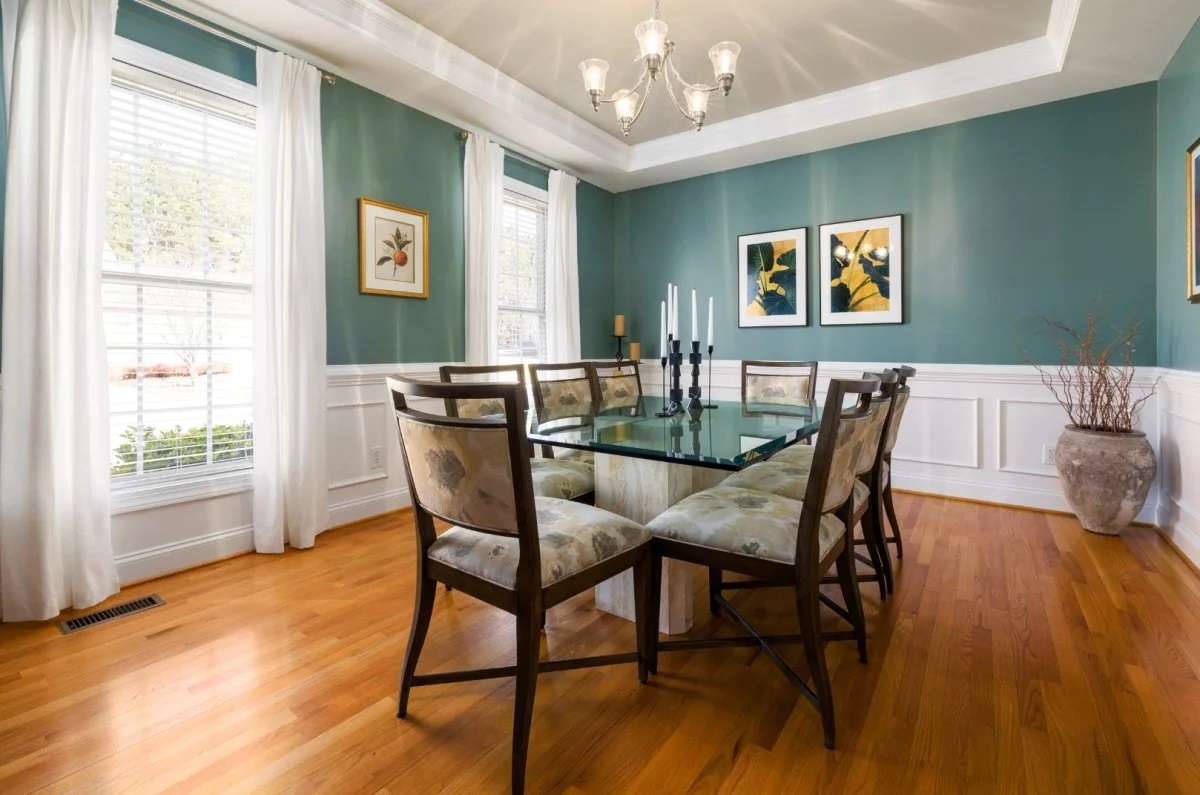
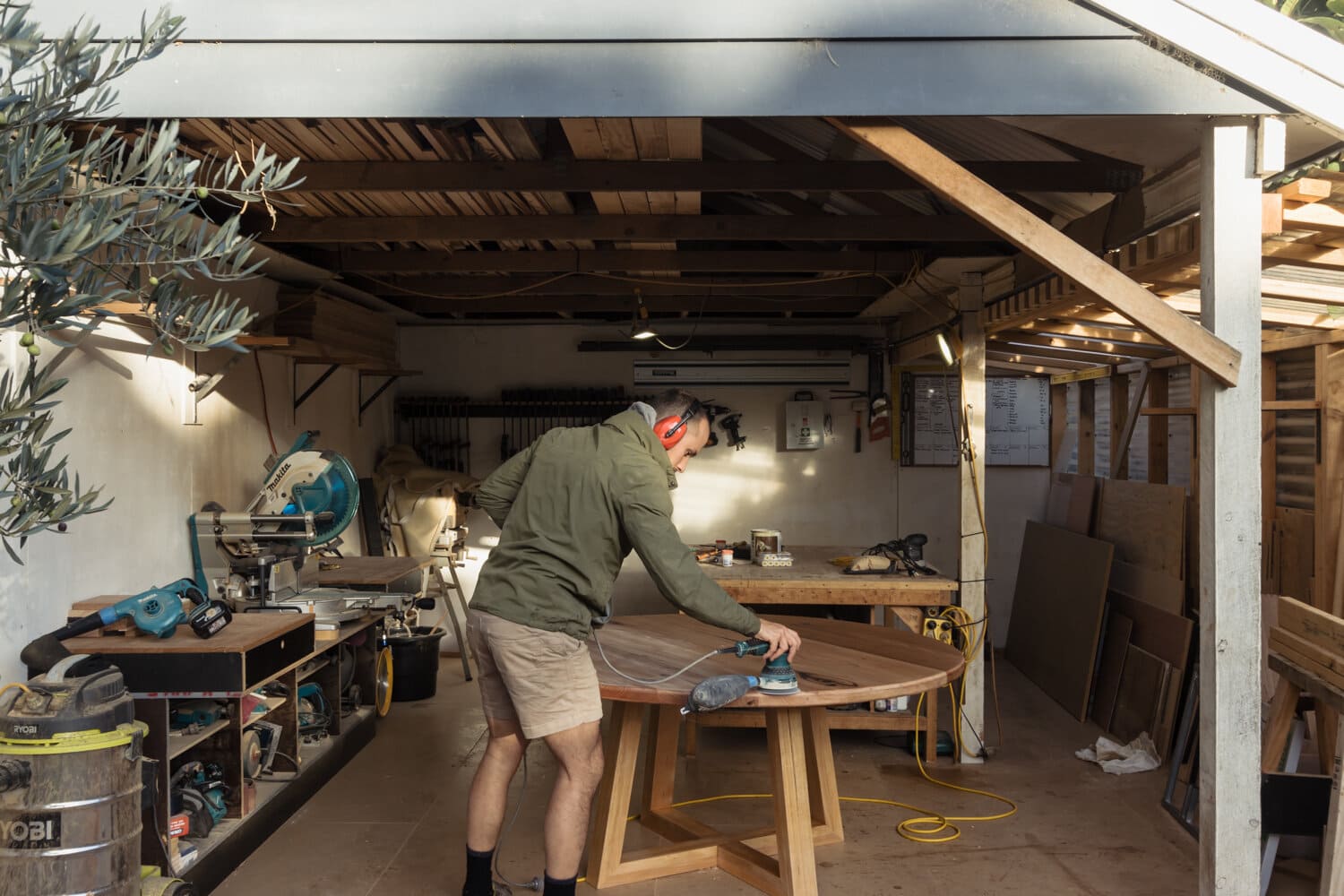
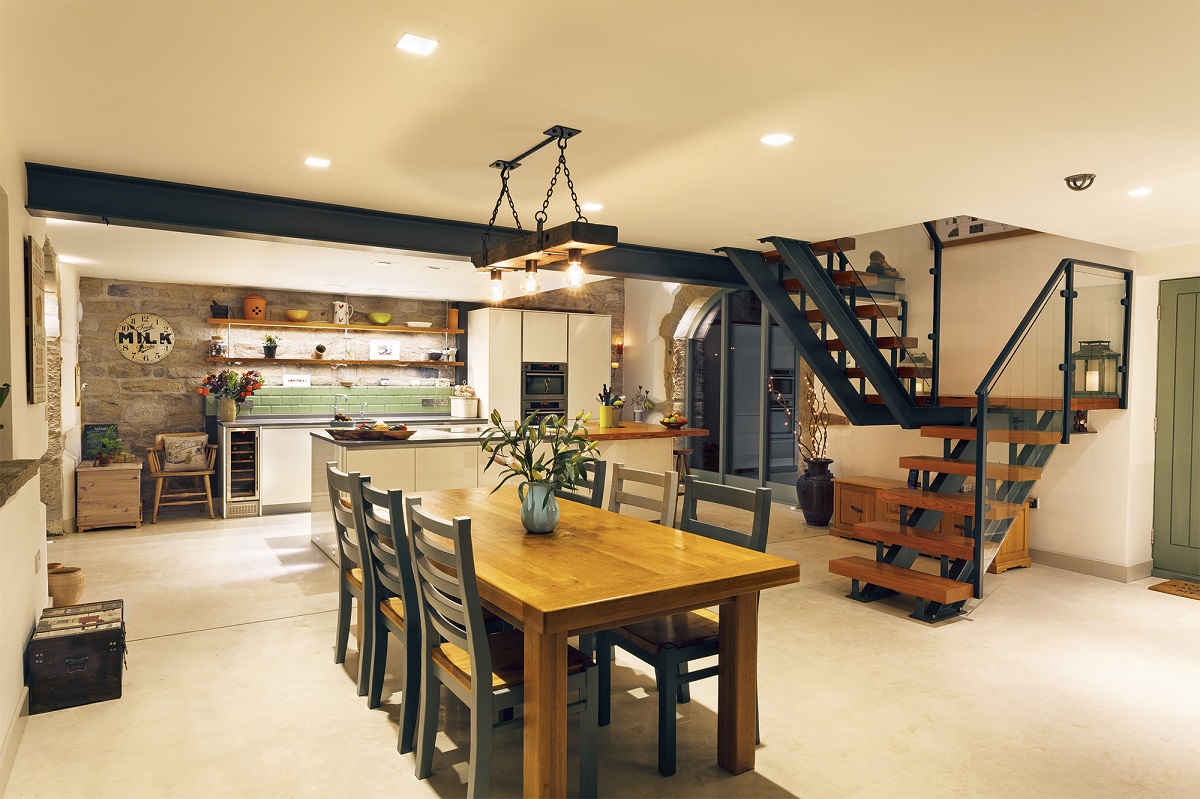
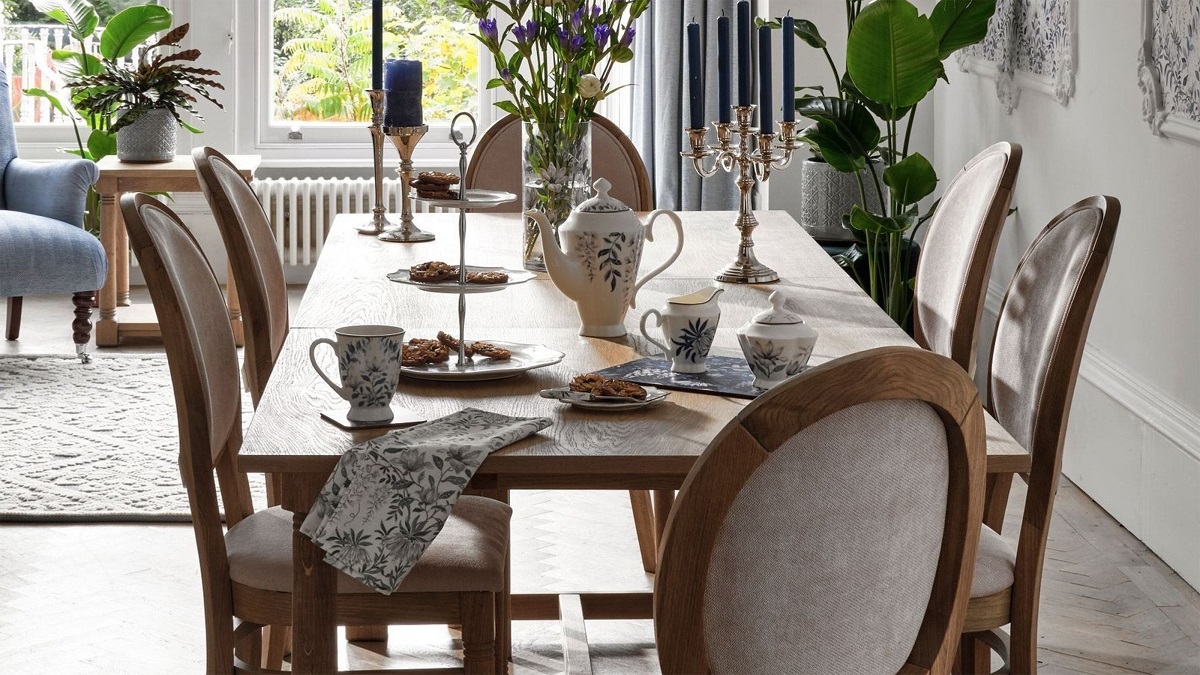
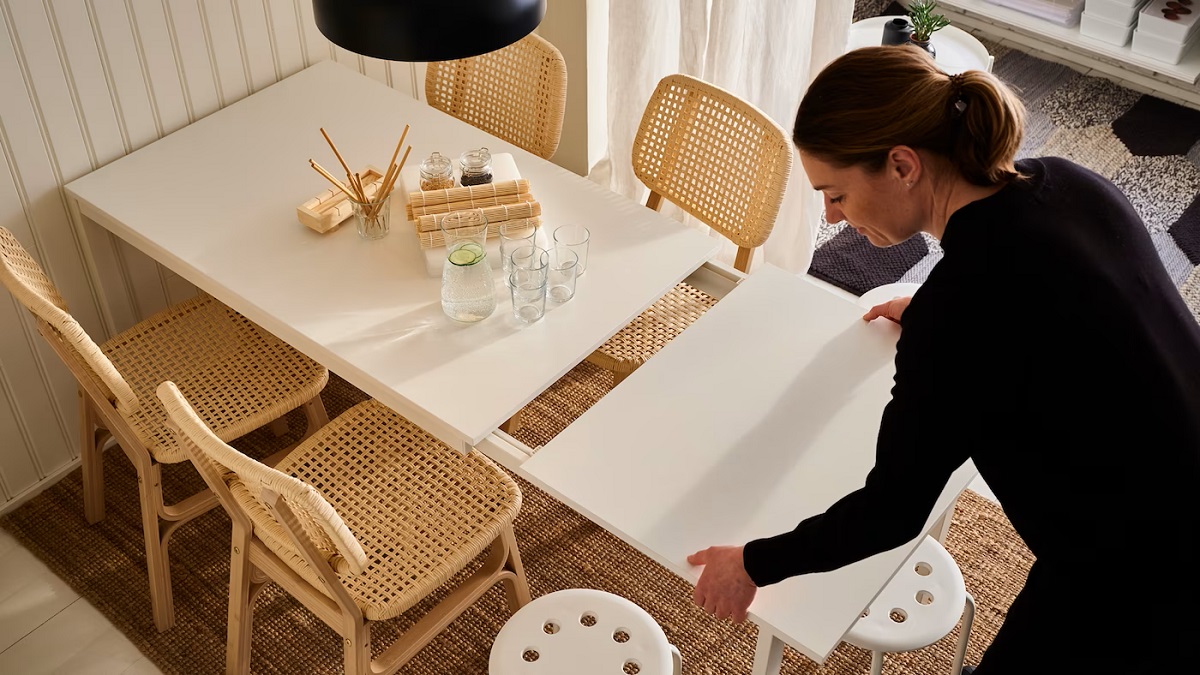
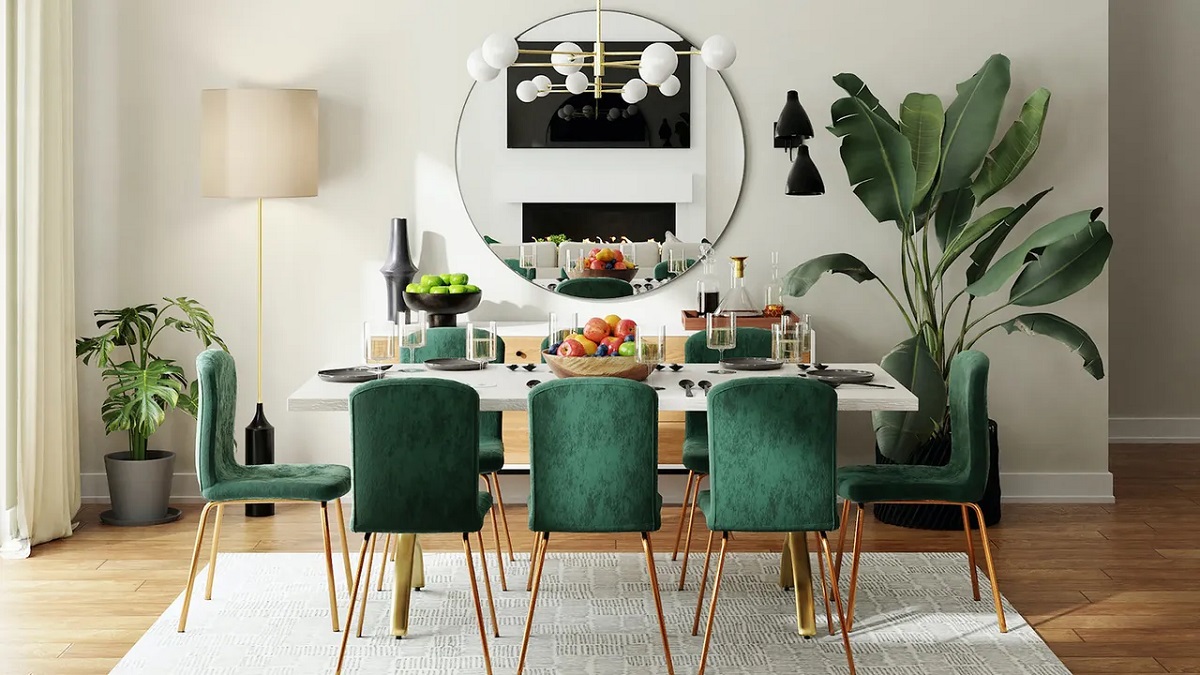
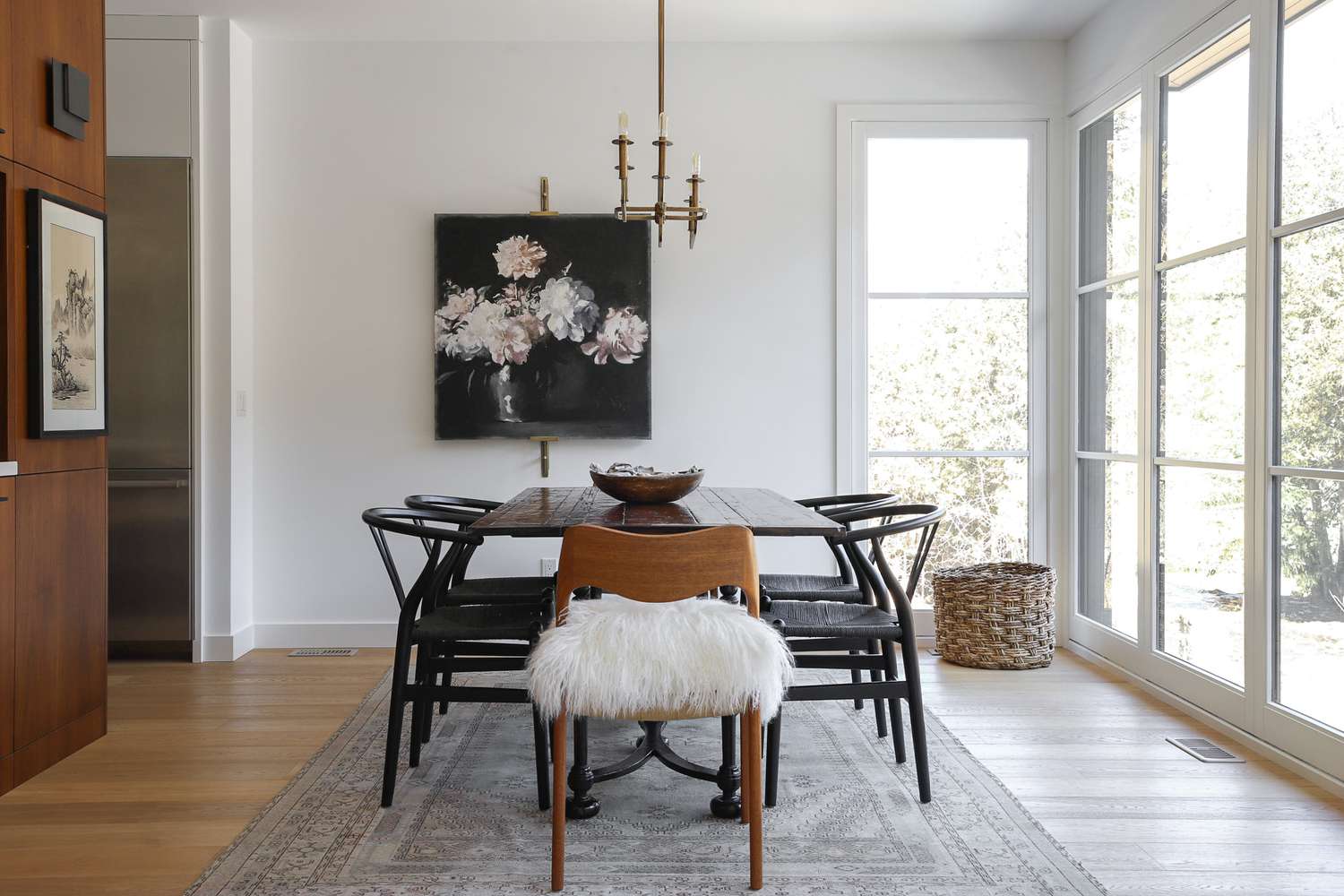
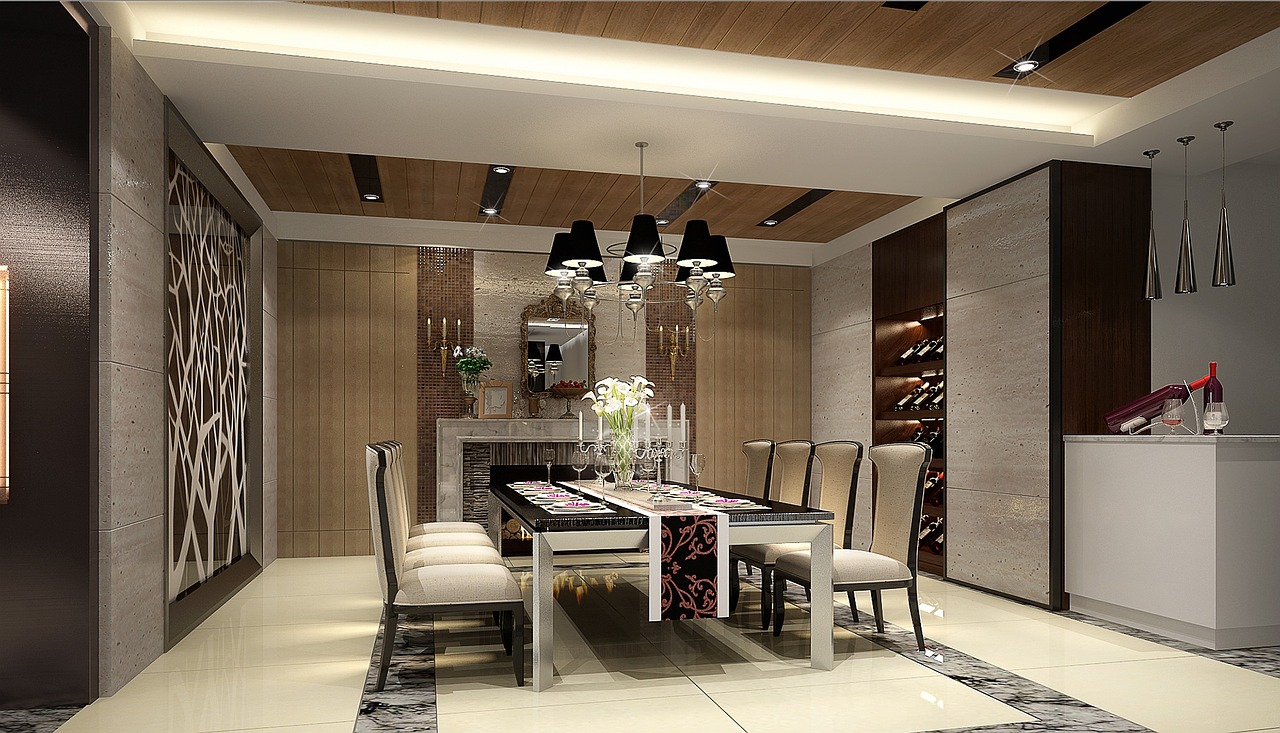
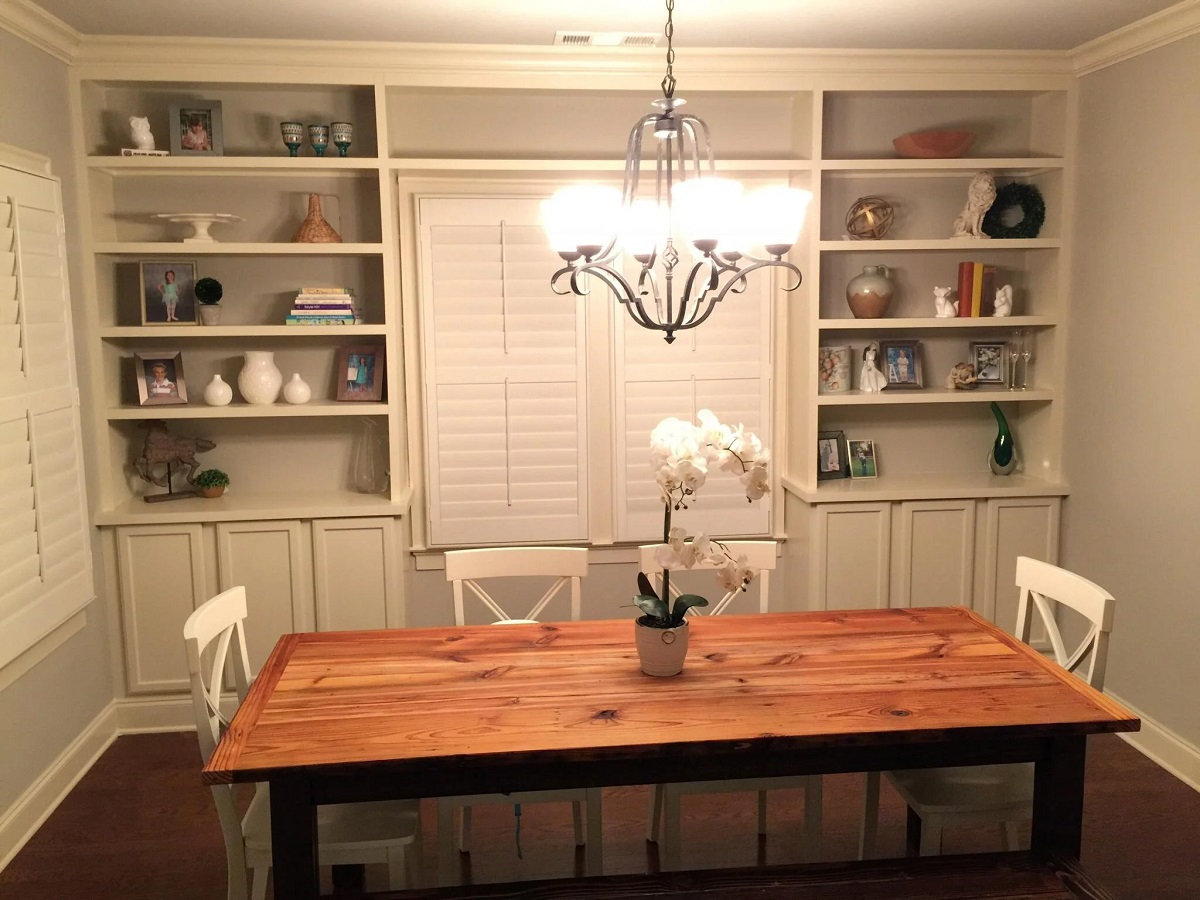

0 thoughts on “How To Set Up A Dining Room Table”